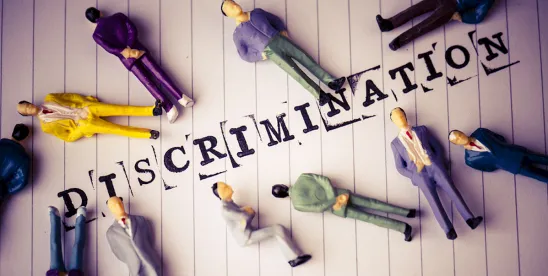Despite the protection that Bostock v. Clayton County provides transgender employees, many may not feel protected. Why, you might ask? Since Bostock was decided by the U.S. Supreme Court in 2020, many states have enacted laws that limit, or ban outright, gender-affirming care. Similarly, some states have enacted bathroom access laws that regulate bathroom usage. Further, UCLA School of Law's Williams Institute issued a report in November 2024 that indicates almost 82 percent of transgender employees have experienced discrimination in the workplace.
States enacting bathroom access laws and laws banning gender-affirming care essentially eliminate mental health care, medical services, social services, and social affirmations that individuals may need. Due to these laws, employers may think they do not need to provide transgender employees and employees who suffer from gender dysphoria with accommodations. Accommodations employers may refuse could include allowing an employee to use the bathroom for the gender they identify as, calling an employee by their preferred pronoun, and/or calling an employee by a new name.
While Bostock protects gender identity under Title VII, a 2022 case from the U.S. Court of Appeals for the Fourth Circuit, Williams v. Kincaid, provides protection for employees suffering from gender dysphoria under the Americans with Disabilities Act. While the ADA excludes “gender identity disorders not resulting from physical impairments” from being considered a disability, the court in Williams held that the exclusion is not applicable to gender dysphoria.
The court in Williams, in part, reached its conclusion by stating that advancements in the medical field demonstrate that “gender identity disorder” is an outdated diagnosis. The court further stated gender dysphoria and gender identity disorder affect different people and have different symptoms. Moreover, the court stated gender dysphoria could result from a physical impairment.
Prior to the Williams decision, district courts all over the country had differing opinions on whether gender dysphoria was protected under the ADA. That said, everything changed when the U.S. Supreme Court declined to decide the issue of gender dysphoria protection under the ADA in 2023. Since then, district courts have followed the Fourth Circuit's decision in Williams.
Despite state laws on gender-affirming care and bathroom access, federal law likely mandates that employers implement policies protecting Title VII and ADA rights of transgender employees and employees suffering from gender dysphoria. Based on the mandate, employers should ensure their policies are up to date, that they conduct thorough workplace investigations when discrimination claims are made, and that they implement their policies uniformly for all employees.
Most transgender employees (82%) reported experiencing discrimination or harassment at work, including being fired, not hired, not promoted, or verbally, sexually, or physically harassed because of their sexual orientation or gender identity at some point in their lives. williamsinstitute.law.ucla.edu/...




 />i
/>i

